Young people develop a wide range of valuable skills through participation in youth work in Scotland, in a range of contexts. These skills are outlined in National Youth Work Outcomes and Skills Framework. The Framework does not aim to capture all of the many skills that young people can develop through youth work. However, it does identify and describe those most commonly developed by young people through their participation.
Confidence means believing in yourself and your abilities. It refers to the feeling that a young person has that they can do well at ‘something’. Confidence includes self-esteem which means how a young person feels about themselves.
When asked about what they have gained from participating in youth work, young people often respond with “confidence”.
Confidence is linked to and underpins the development of other skills and progress towards a number of youth work outcomes. Young people can become more confident in a specific area or more generally feel confident to tackle whatever comes their way.
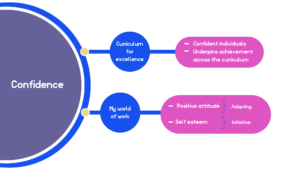
How might a young person develop this skill?
Young people frequently mention confidence as one of the skills they develop though youth work. They develop confidence though a variety of youth work contexts and practice including:
Resilience is the ability young people have to cope with, and recover from challenges and difficulties. It means dealing with stressful or difficult situations in positive and constructive ways.
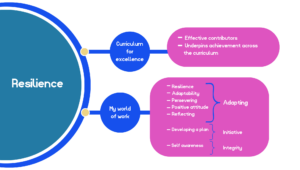
Young people become more resilient through engagement in youth work and supportive relationships with youth workers are important in developing this skill. The safe and welcoming space that youth work provides enables young people to step out of their comfort zone, try new opportunities, make mistakes and learn from them without fear of judgement. Through youth work, young people are encouraged to develop plans and goals that help them to manage or overcome the challenges they face.
This skill can mean different things to different young people but it underpins all other skills and outcomes that young people achieve. The ability to take care of themselves, work on their physical and mental health and transition to independent living gives young people a solid foundation to build from.
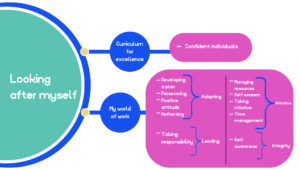
Through youth work young people are encouraged to take responsibility for their learning and development. They may be supported to develop coping strategies for problems they face, learn where to go for information or support and build positive and healthy routines. In youth groups young people can learn about healthy food, how to cook and the importance of being physically active and aware of their mental health. Residentials also help young people to become more independent.
Through their engagement in youth work, young people might take responsibility for managing resources and finances for their youth group. They can then transfer this experience of managing money to their personal lives.
Youth workers are grounded in the communities they work in and understand the individual needs of young people. This means they can provide tailored support to young people helping them to become independent, healthy and in control.
Through participation in youth work, young people develop their ability to make friends and understand what healthy positive relationships look like with adults and their peers. This core skill applies to digital, online relationships as well as offline relationships.
Youth work gives young people the space and opportunity to meet other young people outwith their usual social circle, helping them improve their ability to build and maintain relationships.
Young people are able to develop meaningful and supportive relationships with their youth workers. These relationships are based on trust and respect and model what healthy, consent-based relationships look like in practice.
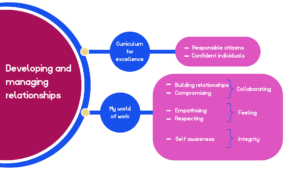
Youth work provides opportunities for young people to meet other young people in a safe and supported environment. The relationship between a young person and their youth worker is an important element of this core skill. Youth workers are, for many young people, trusted adults and they spend time getting to know the young people they work with, developing and modelling healthy, respectful relationships.
Skill description
Communication skills are essential for for young people to survive, thrive and grow. Communication skills help young people to socialise, meet new people, make new friends, maintain existing friendships and develop positive relationships with others in their lives. Improved communication skills enable young people to speak, present and perform in front of others and share their thoughts and ideas in writing. Communication skills apply both online and offline and include young people’s ability to use technology safely and appropriately to navigate the world they live in.
Indicators of Communication
Connections with related frameworks within Scottish Education
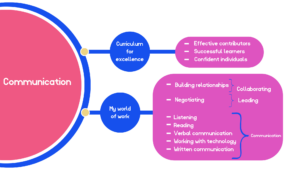
How might a young person develop this skill through youth work?
Youth work provides specific and structured skills development opportunities for young people to develop their communication skills. This might include communicating online, safe use of social media or youth literacies to improve reading and written communication.
Opportunities to develop communication skills are also embedded in youth work more generally. Young people are encouraged by youth workers and their peers to share their thoughts and opinions and listen to the views of others. Youth workers model effective and appropriate communication and foster this in the young people they work with.
Organisation and planning skills are really important in every area of a young person’s life and they underpin many of young people’s achievements. They help young people to identify where they want to go and break down large goals into manageable tasks. Working to a plan can provide a sense of purpose and deliver better results.
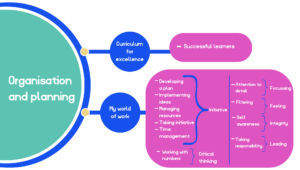
Individually young people might be supported to identify goals and create a plan for how they will work towards them. Young people also develop organisation and planning skills through progressing and completing tasks required to achieve a youth award.
Youth work gives young people the space and opportunity to test and continue to develop their organisation and planning skills in a safe environment both individually and within a group. This might include taking responsibility for planning youth work activities.
Decision making is a process that includes gathering and using information to make choices. It involves knowing where to go for information, how to critically assess information and sources, managing risk and taking responsibility for choices and decisions. This is an important skill for young people navigating through an increasingly complex world with multiple information sources.
Indicators of decision making
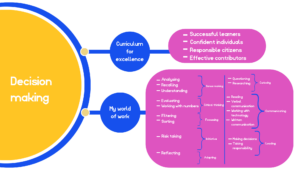
Participation is a fundamental principle of youth work and young people’s participation in decision making is actively supported and encouraged in youth work. Young people are decision makers within their own youth groups, schools, communities and local and national government and through this develop and deepen their decision making skills. Youth work actively signposts information sources for young people and provides training and support on how to assess and use information to make choices.
Problem solving is an essential skill for living, working and learning. It involves understanding a problem, generating and evaluating possible solutions and then implementing solutions. Young people need to solve problems, large and small, on a daily basis. Their ability to break a problem down, apply previous and new knowledge and come up with new ideas helps them thrive.
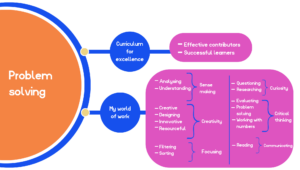
Young people are able to develop and deepen their problem solving skills though a variety of youth work contexts and practice including:
Teamwork is the ability to co-operate and work with other young people or adults towards a common aim.
Indicators of Teamwork
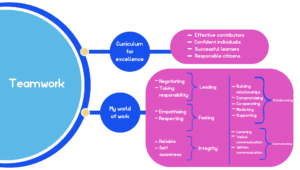
Young people can develop team work skills in a variety of ways, such as working together to decide on activities or programmes within their youth group. They have opportunities to join local youth forums or youth councils and work with others to represent the voice of young people in policy and decision making.
Young people often develop and deepen their teamworking skills though outdoor learning and well as organising and planning events.
Leadership is the ability of young people to lead others towards a goal or aim. Leaders set direction and inspire others, they keep projects and events on track and keep everyone motivated. They direct the activities of a group but also lead through their own actions, modelling the behaviour they want to see from others. Young leaders are role models for other young people.
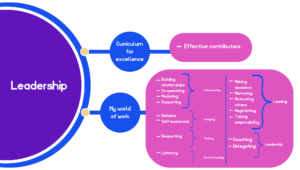
Youth work provides opportunities for young people to take on leadership roles within their youth group or represent young people in decision making structures. Young people might take responsibility for planning and leading programmes and activities within their youth groups. They may also have opportunities to manage finances and resources. Youth work enables young people to shape policy and decision making. Young leaders engage, listen and support other young people and develop positive relationships with them.
Young people live in a complex, interconnected world where their choices and behaviours have consequences and implications for other people locally and globally. The ability to create change equips young people to take action on issues that are important to them. It also means understanding different viewpoints, challenging inequality and prejudice, developing a deeper understanding of rights, taking an active role in their communities, volunteering and participating in democratic structures.
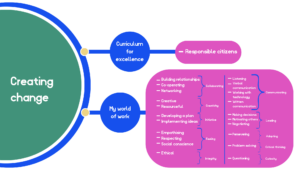
Youth work supports young people to develop an understanding of themselves, their communities and the wider world. They can deepen their understanding of rights and how to take action to make those rights a reality. Young people might learn about how to engage in democratic structures and be encouraged to take part in policy development and decision making processes within their youth group, local community, local authority, Scottish Government or internationally. They might be offered the opportunity to represent the voice of young people or supported to campaign for positive change.